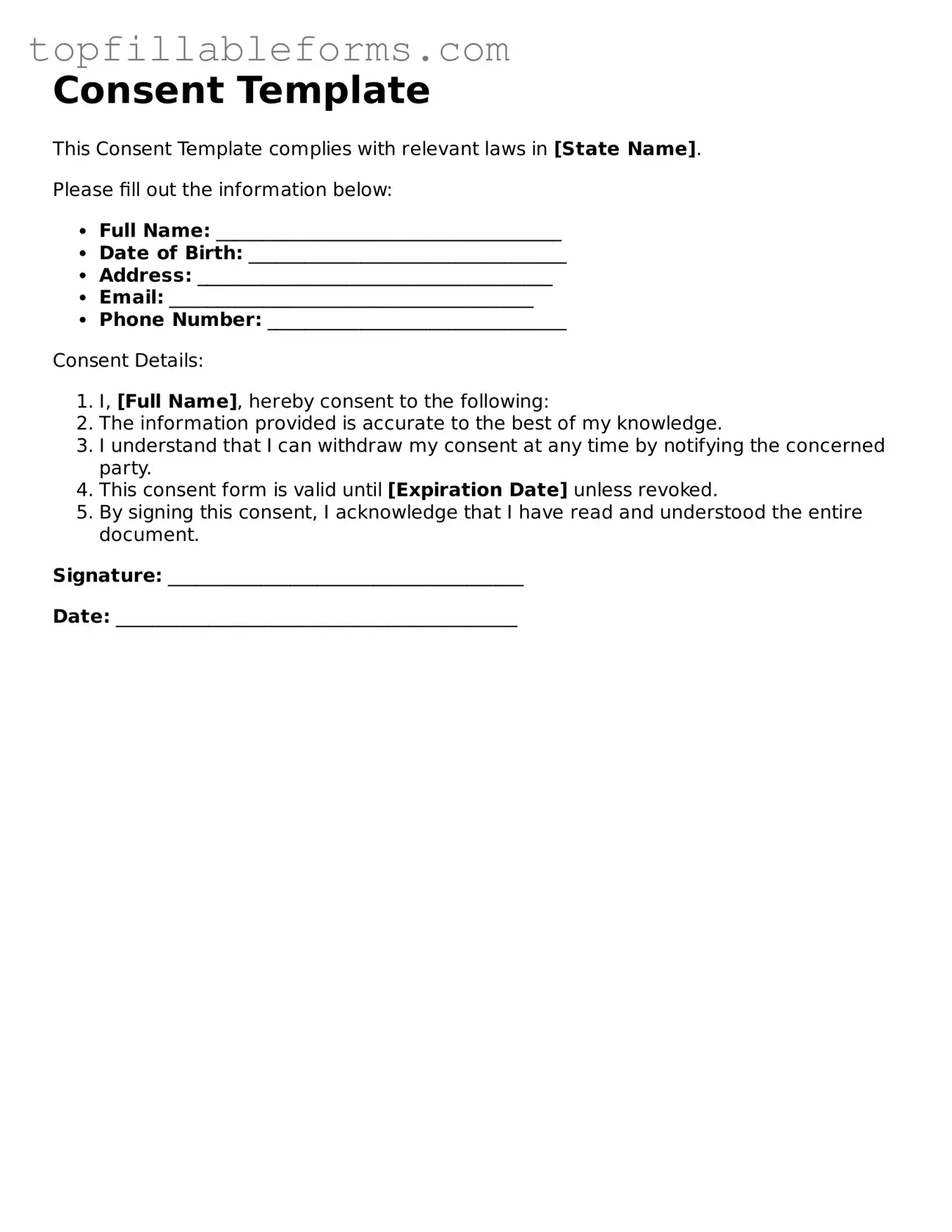Free Consent Form
A consent form is a document that outlines an individual's agreement to participate in a specific activity, often related to medical procedures or research. It ensures that individuals are fully informed about what participation entails and any associated risks. By signing the form, participants provide their voluntary consent, which is a crucial aspect of ethical practices.
Open Consent Editor Here

Free Consent Form
Open Consent Editor Here
Finish the form now and be done
Finish your Consent online by editing, saving, and downloading fast.
Open Consent Editor Here
or
▼ PDF File
